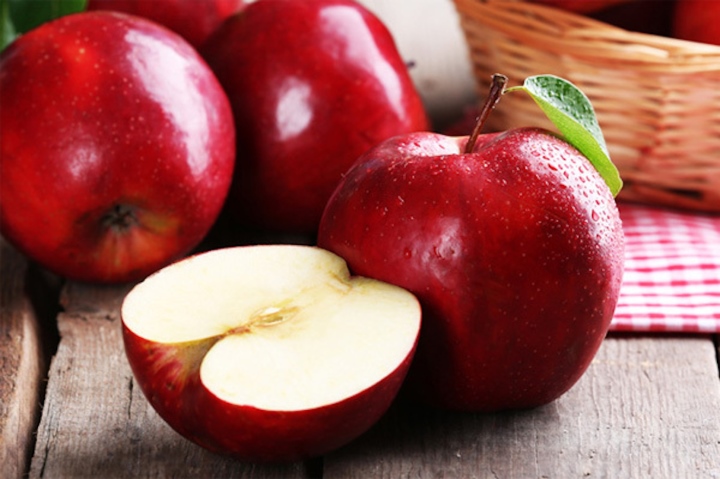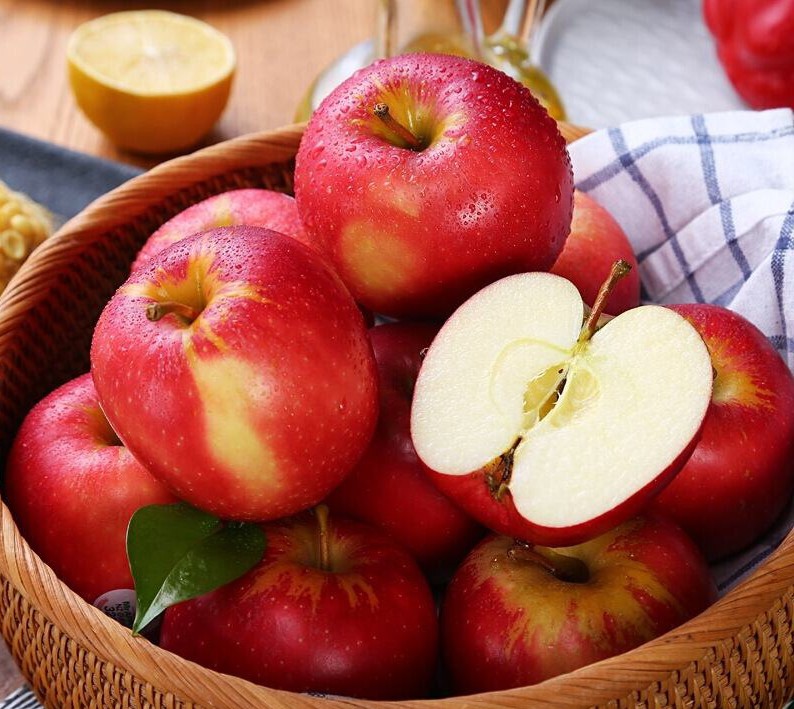Recently, an article in Express quoted the opinions of Dr. Michael Mosley, a British health expert with extensive experience in leading medical TV programs, highlighting 6 types of foods that can improve health. Among them, apples and pears are mentioned as two top choices. Both of these fruits have been proven, through numerous scientific studies, to be abundant sources of beneficial nutrients for consumers’ health.
Why should you eat apples?
Apples are known as “superfoods” in the research community for good reason. An average apple weighing 154g contains up to 5g of fiber, 170mg of potassium, 10mg of calcium, 22g of carbohydrates, 10mg of phosphorus, 7.8mg of vitamin C, and 7.8mg of various B vitamins. It’s worth noting that the calcium content in apples is much higher than in many other types of fruits, helping the body eliminate excess salt.
Apples also stand out for their effective blood sugar management capabilities. Despite their mild sweetness, apples have a highly favorable glycemic index (GI) at 39. Studies have shown that people with diabetes should choose fruits with a GI below 69, and apples, with their low GI, are an ideal choice.

In addition, apples are rich in flavonoids, compounds that have been shown to reduce blood pressure. Therefore, apples are an excellent choice for those looking to control blood pressure, and they can be consumed as a healthy snack or dessert.
Apples are also known for their anti-inflammatory properties and their ability to prevent various forms of cancer such as lung, colorectal, and prostate cancer. This is due to the high antioxidant content, especially in their skin.
Apples also have benefits for kidney function. The antioxidants and pectin in apples help reduce the risk of kidney damage. Therefore, those with kidney issues are often advised to include apples in their daily diet.
Furthermore, apples are also beneficial for brain health. Packed with antioxidants, especially quercetin, apples have a positive impact on nerve cells and are beneficial for memory. For these reasons, apples have been praised as a natural “superfood” for human health.

Why should you eat pears?
Pears are a fruit rich in nutrients and offer many health benefits. Each 100g of pear contains 86.5g of water, 0.1g of fat, 0.2g of protein, 11g of carbohydrates, 1.6g of fiber, 14mg of calcium, 13mg of phosphorus, 0.5mg of iron, 0.2mg of vitamin PP, as well as various vitamins like vitamin P, C, betacarotene, and 1mg of folic acid. Pears are notable for their high fiber content, which plays a necessary role in digestion and metabolism.
The British newspaper Express reported that pears contain powerful cancer-fighting compounds and can be used as a tool for preventing dangerous types of cancer. Studies have shown that pears can help protect against colorectal and lung cancer.
The report also mentioned a large study involving 478,000 participants, which found that regular consumption of pears can lower the risk of developing lung cancer. Antioxidants such as anthocyanins in pears are believed to contribute to preventing the formation and development of cancer cells.
The abundant fiber in pears, due to its soft nature, also contributes to a quick sense of fullness, helping control cravings and limiting food intake.

Another 12-week study found a reduction of 1.1 inches (1 inch equals 2.54cm) in waist circumference for those who consumed 2 pears per day, according to information from the Times of India.
Pears, with their rich fiber and vitamin content, play an important role in blood sugar control, increasing insulin responsiveness, and maintaining low blood sugar levels, only at 38. They are an excellent choice for people with diabetes, allowing them to satisfy their sweet cravings without negative effects, although consumption should be limited to a moderate level.
Pears also stand out for their ability to support the prevention of osteoporosis due to their vitamin K content, which helps protect bone cells and slow down the degeneration of bone joints. To enhance effectiveness, calcium supplementation should be combined with appropriate pear consumption.
When consuming pears, it is important to avoid combining them with certain foods such as beets, spinach, or goose meat, as this combination can cause unwanted reactions in the body, even leading to the risk of goiter, or stomachache.





































